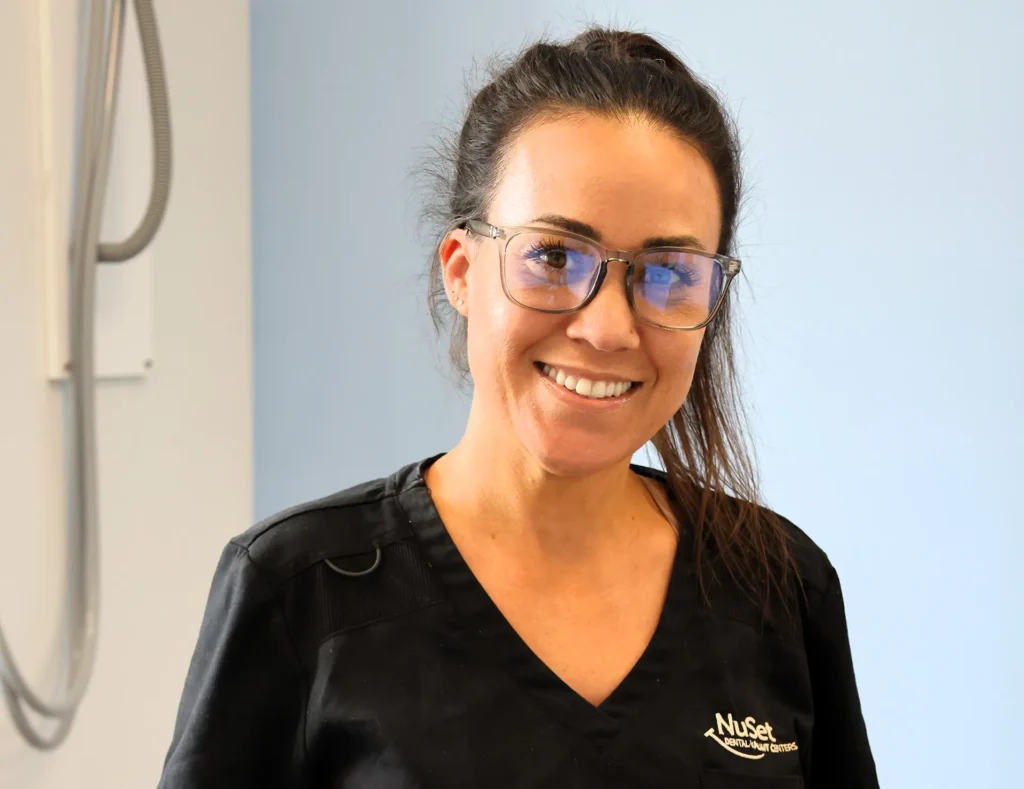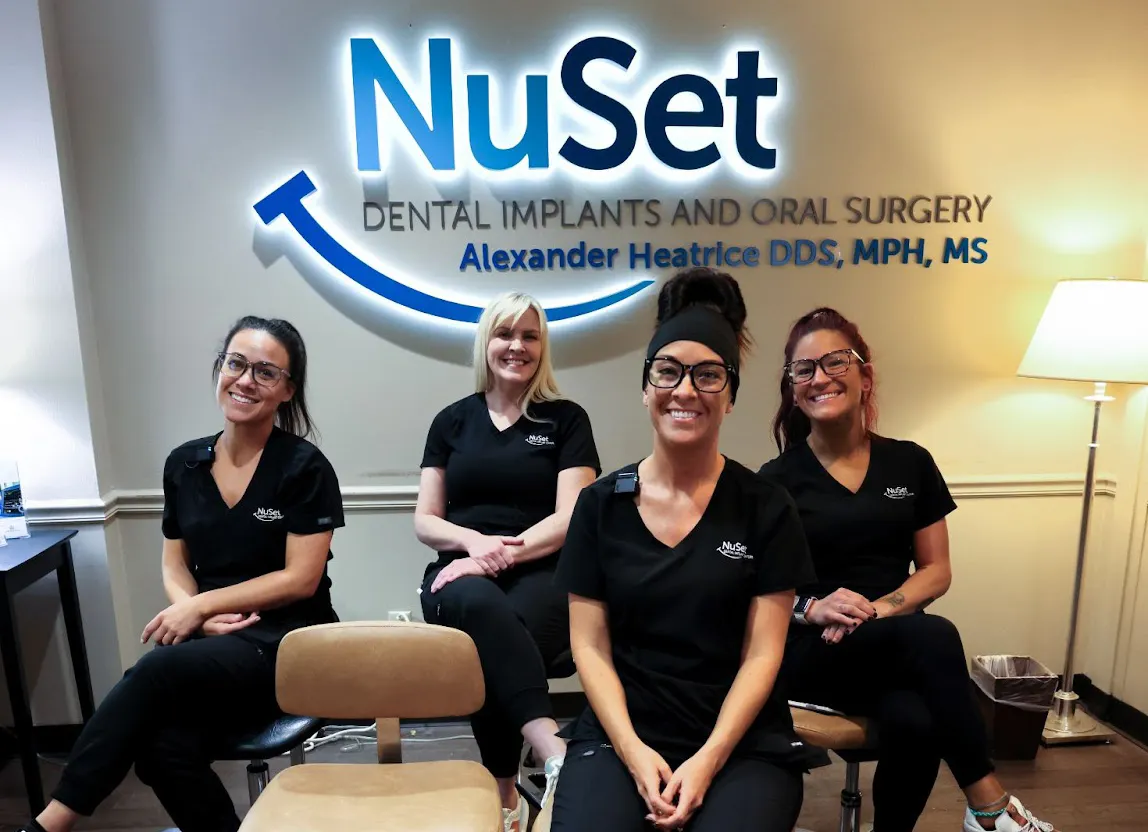Gum disease, if not treated, often leads to tooth loss, raising concerns about the possibility of getting dental implants. Patients with mild gum disease, which hasn’t yet progressed to periodontitis, also seek to replace missing or damaged teeth with implants.
This raises an important question: Are dental implants feasible for those with gum disease, or do compromised gums pose a significant risk to implant success?
Healthy gum and jawbone are essential for the stability and success of dental implants. Periodontal disease, which affects these crucial structures, can complicate the process. However, advancements in dental treatments offer hope. With proper care and treatment, many people with gum disease can still benefit from dental implants.
Let’s explore the impact of periodontal disease on dental implants, discuss treatment options to manage gum disease, and provide insights into how you can achieve a successful dental implant outcome.
Key Takeaways
- While periodontal disease presents challenges, dental implants are still a viable option with proper treatment and care.
- Gum disease must be managed before implants, often requiring deep cleaning or surgery.
- Peri-implantitis can develop if periodontal disease isn’t treated.
- Ongoing care and regular check-ups ensure implant success and gum health.
What is a Dental Implant?
A dental implant is a device used to replace a missing tooth. It involves a surgeon placing a screw-like implant into the jawbone, which acts as an anchor for the new tooth, known as a crown.
An abutment connects the implant to the crown, which is custom-made to fit the individual’s mouth and match the color of their natural teeth. Crowns look, feel, and function like real teeth.
Dental implants offer several advantages over dentures, which are removable replacement teeth. Implants:
- Are more natural and comfortable
- Have a higher success rate
- Improve chewing function
- Reduce the risk of cavities in nearby teeth
- Help maintain bone at the site of the lost tooth
- Cause less sensitivity in nearby teeth
- Do not need to be taken out and cleaned every night
What is Periodontal Disease?
Periodontal disease, also known as gum disease, is an infection of the gums and the surrounding structures of the teeth. It starts with bacterial growth in the mouth and can lead to serious damage to the gums and jawbone if not treated.
Gingivitis is the early stage of periodontal disease. During this stage, the gums may become red, swollen, and bleed easily. Gingivitis is usually caused by poor oral hygiene, and it is reversible with proper brushing, flossing, and regular dental cleanings.
If left untreated, gingivitis can progress to periodontitis. In this more severe stage, the inner layer of the gums pulls away from the teeth and forms pockets that can become infected. The body’s immune system fights the bacteria as the plaque spreads and grows below the gum line.
Toxins produced by the bacteria and the body’s response to the infection start to break down the bone and connective tissue that hold teeth in place. If not treated, periodontitis can lead to tooth loss.
Impact of Periodontal Disease on Dental Implants
Periodontal disease can significantly impact the success of dental implants. A healthy jawbone and healthy gums are essential for the stability and longevity of dental implants. When periodontal disease is present, it compromises these critical structures, making the implant process more challenging.
Gum disease causes inflammation and infection in the gums, which can lead to the loss of gum tissue and bone around the teeth. This loss affects the foundation needed to support a dental implant. Without sufficient bone, the implant cannot securely anchor in the jaw, increasing the risk of implant failure.
The bacteria associated with periodontal disease can infect the area around the implant, leading to a condition called peri-implantitis. Peri-implantitis causes inflammation and bone loss around the implant, similar to periodontitis around natural teeth. If not treated, it can result in the implant becoming loose and ultimately failing.
It is crucial to address and manage periodontal disease before considering dental implants. This is what we do best at NuSet Dental Implants and Oral Surgery. We do not just install your implants blindly. We carry out a comprehensive evaluation before and after the implant to ensure a successful outcome.
If You Have Periodontal Disease, Can You Get Dental Implants?
Yes, you can still get dental implants if you have periodontal disease, but it requires careful management and treatment of the gum disease first. Our dentists can help you control and treat periodontal disease, making it possible to proceed with dental implants.
The first step is to control gum disease. This may involve deep cleaning procedures like scaling and root planing, which remove plaque and tartar from below the gum line. In more severe cases, surgical treatments might be necessary to restore gum health.
Once the periodontal disease is managed, a thorough evaluation is essential. We will assess the health of your gums and jawbone to determine if you are a suitable candidate for dental implants. If there has been significant bone loss, procedures such as bone grafting may be required to rebuild the bone structure and provide a stable foundation for the implant.
You can still enjoy the benefits of dental implants by successfully treating periodontal disease and following a customized treatment plan. We will work closely with you to ensure the best possible outcome for your oral health and implant success.

Regain Your Beautiful Smile with NuSet Dental Implant and Oral Surgery
Periodontal disease doesn’t mean you can’t get dental implants. With proper treatment and careful gum health management, you can still benefit from dental implants.
If you are worried about gum disease and dental implants, get professional advice. At NuSet Dental Implant and Oral Surgery, we offer personalized care and effective solutions to help you achieve a healthy and confident smile.
Contact us today to schedule a consultation and start your journey to better oral health and a restored smile.
Frequently Asked Questions
Is it possible to get dental implants if I have active periodontal (gum) disease?
It is not recommended to get dental implants if you have active periodontal disease. The infection can compromise the stability and success of the implants. Treating and managing the gum disease first is important to ensure a healthy foundation for the implants.
What steps need to be taken before getting dental implants if I have a history of gum disease?
If you have a history of gum disease, the first step is to undergo a thorough dental examination. We may recommend treatments such as scaling and root planing, antibiotic therapy, and improved oral hygiene practices. In some cases, surgical procedures might be necessary to restore gum and bone health before proceeding with dental implants.
Will having dental implants increase my risk of gum disease recurrence?
No. Dental implants do not increase the risk of gum disease recurrence. However, maintaining good oral hygiene is crucial to prevent infection around the implants, known as peri-implantitis. Regular dental check-ups, professional cleanings, and proper home care are essential to minimize the risk of recurrence.
Are there any special maintenance considerations for dental implants if I’m prone to gum disease?
Yes, if you are prone to gum disease, you need to take extra care of your dental implants. This includes meticulous oral hygiene practices such as brushing twice a day, and using an antimicrobial mouthwash. Regular dental visits for professional cleanings and check-ups are also vital to monitor and maintain the health of your gums and implants.
How does periodontal disease affect the success rate of dental implants?
Periodontal disease can negatively impact the success rate of dental implants, but working with oral specialists can significantly improve your dental implant’s success rate. The disease affects the gums and bone, which are essential for supporting the implants. Without healthy gums and sufficient bone, the implants may not integrate properly, leading to a higher risk of implant failure. Effectively managing periodontal disease before and after implant placement is crucial for long-term success.





